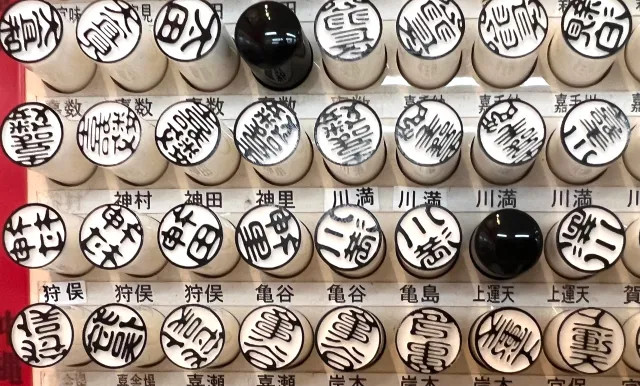
This Okinawan singer has a last name so rare, only 1 every 90,000 people in Japan have it!
Yohena (饒平名). Nakandakari (仲村渠). Daijuku (大工廻).
Do you know what these Japanese words are?
They’re names! They’re all family names said to originate in Okinawa, and they all have different ways to read them, including the ones listed above. Though people who live in Okinawa will know of them, they’re very rare on mainland Japan, so you may have never even heard of them.
Our Japanese-language reporter Kouhey learned about rare Okinawan family names after an Internet deep dive. His interest stemmed from a recent visit to Ishigaki Island, a remote island in the prefecture of Okinawa, where he came face to face with the unusual names of Okinawans in a bookshop called Townpal Yamada, which was in the popular shopping street Euglena Mall.
Inside the bookshop was a section displaying personal seals. Called hanko in Japanese, these red-ink stamps are carved with a person’s last name and used in lieu of a signature to sign important documents. Of course, such a display of names led Kouhey to notice something interesting.
There was a whole section labeled “Regional Name Versions from Okinawa Prefecture.” The selection was outlined in bright red to indicate that these were names found in Okinawa, and that mainland-style names are in the other sections.
It was full of names you’d never find on the average hanko display on the mainland–you’d have to special order them!
But there were also names that were pretty common on the mainland, like Nishimura, Arata, and Hamada.
While browsing the interesting selection, Kouhey had to wonder, “If a person with a name like one of these moved to the mainland, how would it affect their everyday life?”
This question hovered in the corners of his mind for months, occasionally rising to the surface to niggle at him, until finally he decided to interview someone with a family name he’d never heard of in his life: Takahiro Heianzan (平安山 高宏), a musician from Ishigaki.
Operating under the stage name Henzan, Heianzan is the bassist and vocalist of the musical group Nose Waters, who, though originally from Okinawa, are active all over Japan.
He’s also done some solo work under the name Henzan☆Takahiro and as part of the group Cosodates, whose music is themed after their struggles with parenthood. He’s a very active musician in a wide range of genres.
Nose Waters, by the way, just held a successful 30th Anniversary show on Ishigaki Island in November, which attracted a crowd of 1,000 people, and just the other day they played to a full house at Izakaya Kodama in Tokyo, the Kanto area’s biggest Okinawa music bar.
Kouhey himself was there at Izakaya Kodama, and after the show, he went home and did some research online. That’s when he learned that Henzan’s real last name is Heianzan, which is a name that only 1,400 people in the whole country have. With Japan’s population currently at around 120 million, that means that only one of every 90,000 people in Japan have that name!
What’s more, roughly 1,300 of them live in Okinawa. That makes the name Heianzan super rare on the mainland, since only about one in 1.2 million people outside of Okinawa use it.
So how does that affect daily life on the mainland? Kouhey, pictured below, sought to find out by asking Henzan.
Kouhey: “Thank you for meeting with me! First of all, when I looked it up on the Internet, I learned that there are only 1,400 people in all of Japan who have the last name Heianzan.”
Henzan: “Really? When I lived on Ishigaki Island, there was another person named Heianzan, so I didn’t think it was especially rare. I only realized how rare it was when I came to Tokyo.”
Kouhey: “It’s a name I’ve never heard before. Apparently, there are quite a few in Chatan in Okinawa.”
Henzan: “In that area, though, a lot of people read it as ‘Henzan,’ like my stage name, even though they use the same characters. The reading ‘Heianzan’ itself is pretty rare. It’s been about 30 years since I moved to Tokyo, but I have never once seen a nameplate outside someone’s house here with my name, and I’ve never met anyone else with my name either.”
──Based on this part of the conversation, Kouhey could already tell that the name Heianzan was, indeed, fairly unusual. Next, he asked about any difficulties or benefits Henzan experienced on the mainland because of his last name.
Kouhey: “Have you gained anything from having such a rare name?”
Henzan: “I think the biggest one is that it’s really memorable. Any time I’ve met a band I really admire, like The Boom, the members always remember my name. That’s how The Boom ended up inviting me to play on their radio show.”
Kouhey: “That’s true. I also remembered your name immediately, which was what made me decide to interview you.”
Henzan: “Also, during the talk portion of shows with Nose Water, when the MC is doing the band member introduction, they often get the crowd laughing by poking fun of my name, like, ‘Your last name is so unusual, but your first name, Takahiro, is so weirdly normal!’ They also joked that even if they wanted to make a cool nickname for me, like Takuya Kimura‘s ‘KimuTaku’, it’d be hard because the name Henzan is already a nickname, but it only uses my last name.”
Kouhey: “So, tell me if there are times your name makes it hard for you, or if there are any cons to having it.”
Henzan: “There are quite a few annoying things. For one, ‘Heianzan’ doesn’t exactly roll off the tongue. For example, if I’m at a place where I have put my name on a waiting list, like a karaoke place or a restaurant, I always have someone I’m with put theirs instead.”
Kouhey: “I see. That’s true, the staff might have a moment of pause before calling it out, and it might cause a stir among the people around you. So what do you do when you have no choice but to write your name?”
Henzan: “Any place that needs my actual identity, I’ll of course write my real name, but if not, then I usually use a false name that contains just two of the kanji, like “Hirayasu (平安)” or “Hirayama (平山).”
Kouhey: “That does sound pretty annoying. But the fact that it leaves an impact is definitely a benefit. Thank you for talking with me today!”
──So there you have it: the challenges and benefits of having a rare Okinawan last name on the mainland. They’re familiar challenges for expats with non-Japanese names in Japan, but for Kouhey, who has a perfectly ordinary mainland Japanese name, it was quite an educational interview. The mainland has its fair share of unusual names too, so there are bound to be quite a few people who experience similar difficulties!
Related: Henzan☆Takahiro’s Instagram, Nose Waters’ Instagram
Images © SoraNews24
● Want to hear about SoraNews24’s latest articles as soon as they’re published? Follow us on Facebook and Twitter!
[ Read in Japanese ]


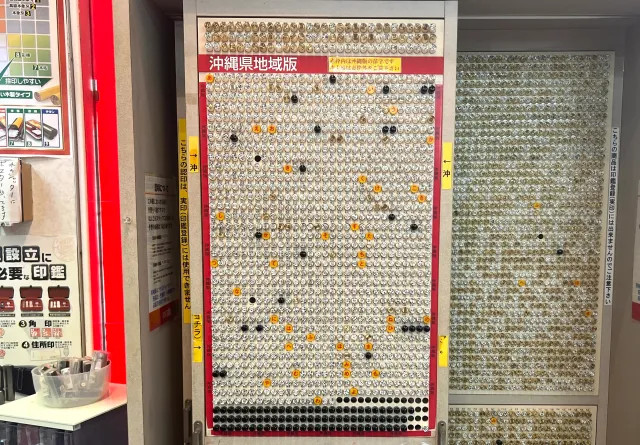
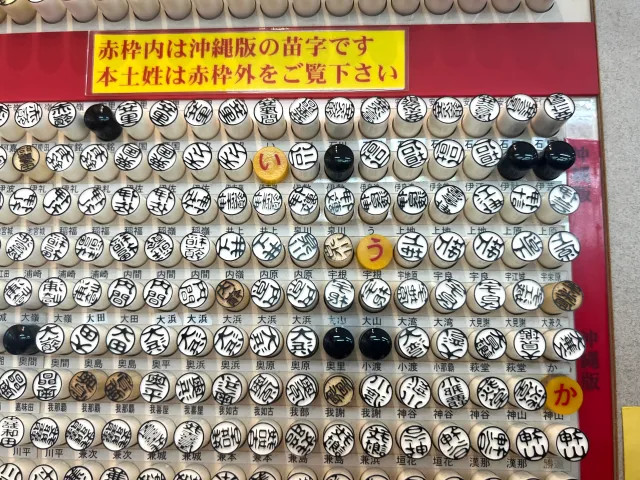
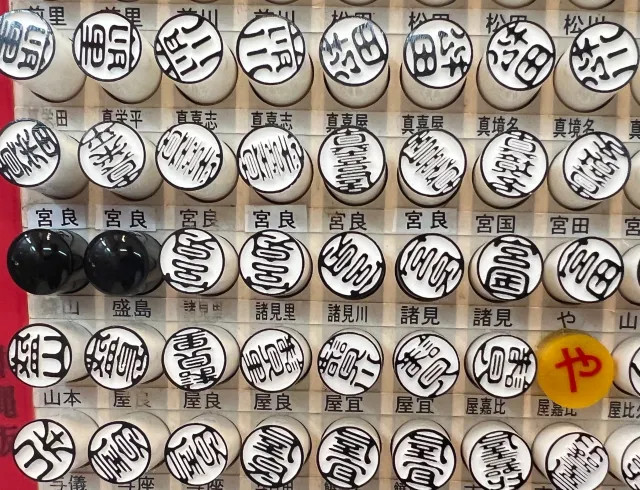
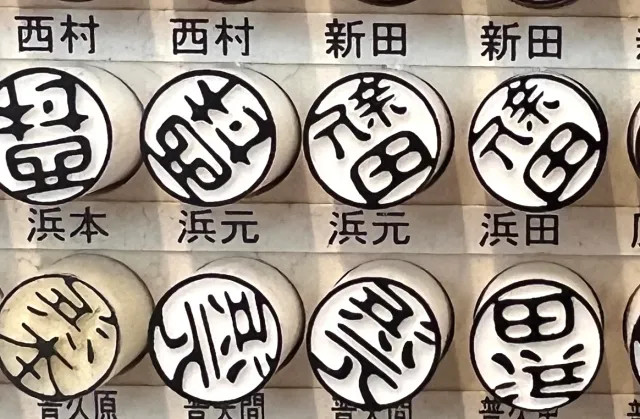
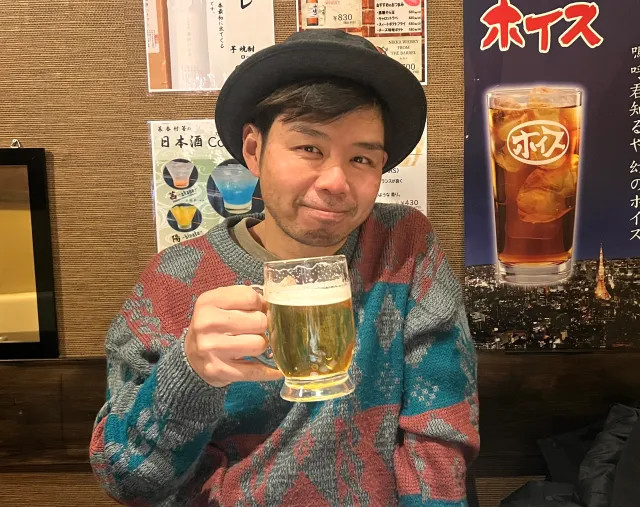

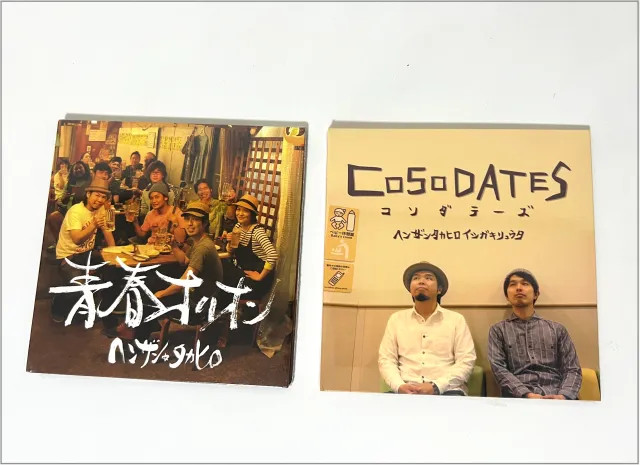

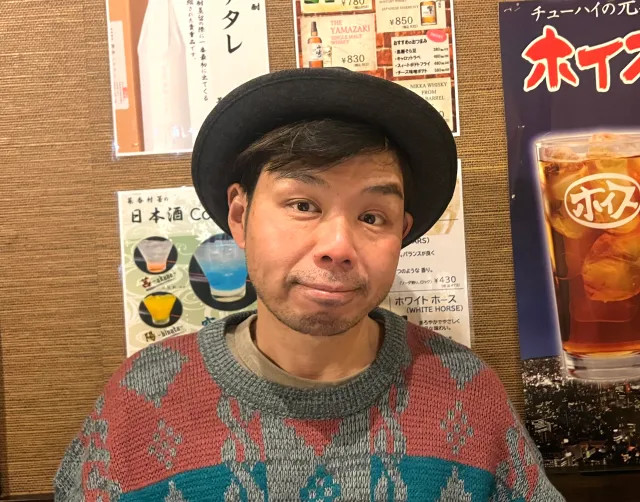

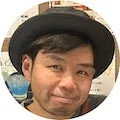
 We find an Okinawan chili sauce made with the rarest kind of awamori–so we had to taste it
We find an Okinawan chili sauce made with the rarest kind of awamori–so we had to taste it How drunk can Awamori Jelly infused with liquor from Okinawa make us?
How drunk can Awamori Jelly infused with liquor from Okinawa make us? We try hone-jiru (bone soup), a delicious Okinawan specialty hard to find on mainland Japan
We try hone-jiru (bone soup), a delicious Okinawan specialty hard to find on mainland Japan Giant engraved sword is also a Japanese nameplate (plus most awesome home fixture ever)
Giant engraved sword is also a Japanese nameplate (plus most awesome home fixture ever) “Hey, Japanese taxi driver, take us to the best Yaeyama soba noodles on Ishigaki Island!”
“Hey, Japanese taxi driver, take us to the best Yaeyama soba noodles on Ishigaki Island!” How to order snacks on a Shinkansen bullet train in Japan
How to order snacks on a Shinkansen bullet train in Japan New Pokémon ice cream, dessert drinks, and cool merch coming to Baskin-Robbins Japan【Pics】
New Pokémon ice cream, dessert drinks, and cool merch coming to Baskin-Robbins Japan【Pics】 Japan’s new difficult-to-drink-from beer glass protects your liver, but it’s a brutal experience
Japan’s new difficult-to-drink-from beer glass protects your liver, but it’s a brutal experience Demon Slayer: Kimetsu no Yaiba gets new roller coaster attractions and food at Universal Studios Japan
Demon Slayer: Kimetsu no Yaiba gets new roller coaster attractions and food at Universal Studios Japan Burger King Japan suddenly adds Dr. Pepper and Dr. Pepper floats to its menu nationwide
Burger King Japan suddenly adds Dr. Pepper and Dr. Pepper floats to its menu nationwide High-fashion Totoro cuddle purse is like an elegant stroll in the forest【Photos】
High-fashion Totoro cuddle purse is like an elegant stroll in the forest【Photos】 Hello, cosmetics! Clinique teams up with Hello Kitty this summer for first-time collaboration
Hello, cosmetics! Clinique teams up with Hello Kitty this summer for first-time collaboration To combat declining birth rate, Japan to begin offering “Breeding Visas” to foreigners
To combat declining birth rate, Japan to begin offering “Breeding Visas” to foreigners Russian crocodile hospitalized after woman falls on it
Russian crocodile hospitalized after woman falls on it Starbucks Japan welcomes alpacas for cute summer drinkware line【Photos】
Starbucks Japan welcomes alpacas for cute summer drinkware line【Photos】 Nintendo history you can feel – Super NES, N64, and GameCube controllers become capsule toys
Nintendo history you can feel – Super NES, N64, and GameCube controllers become capsule toys “The most Delicious Cup Noodle in history” – Japan’s French Cup Noodle wins our heart【Taste test】
“The most Delicious Cup Noodle in history” – Japan’s French Cup Noodle wins our heart【Taste test】 Starbucks releases a cute Frappuccino and Unicorn Cake…but not in Japan
Starbucks releases a cute Frappuccino and Unicorn Cake…but not in Japan Kyoto Tower mascot termination reveals dark side behind cute Japanese characters
Kyoto Tower mascot termination reveals dark side behind cute Japanese characters McDonald’s Japan’s Soft Twist Tower: A phantom ice cream only sold at select branches
McDonald’s Japan’s Soft Twist Tower: A phantom ice cream only sold at select branches Yabai Ramen: What makes this Japanese ramen so dangerous?
Yabai Ramen: What makes this Japanese ramen so dangerous? Finally! Nintendo Japan expands Switch 8-bit controller sales to everybody, Online member or not
Finally! Nintendo Japan expands Switch 8-bit controller sales to everybody, Online member or not Japanese government wants to build luxury resorts in all national parks for foreign tourists
Japanese government wants to build luxury resorts in all national parks for foreign tourists 10 things you should buy at 7-Eleven in Japan
10 things you should buy at 7-Eleven in Japan Studio Ghibli releases anime heroine cosplay dresses that are super comfy to wear
Studio Ghibli releases anime heroine cosplay dresses that are super comfy to wear Woman charged for driving suitcase without a license in Osaka
Woman charged for driving suitcase without a license in Osaka Studio Ghibli unveils My Neighbour Totoro miniature house model
Studio Ghibli unveils My Neighbour Totoro miniature house model Kyoto experiencing problems with foreign tourists not paying for bus fares, but not on purpose
Kyoto experiencing problems with foreign tourists not paying for bus fares, but not on purpose Fighting mild hunger with a Japanese soda that turns into jelly in the stomach【Taste test】
Fighting mild hunger with a Japanese soda that turns into jelly in the stomach【Taste test】 Studio Ghibli’s Howl’s Moving Castle tapestry unveiled in Japan for first time
Studio Ghibli’s Howl’s Moving Castle tapestry unveiled in Japan for first time McDonald’s new Happy Meals offer up cute and practical Sanrio lifestyle goods
McDonald’s new Happy Meals offer up cute and practical Sanrio lifestyle goods Sales of Japan’s most convenient train ticket/shopping payment cards suspended indefinitely
Sales of Japan’s most convenient train ticket/shopping payment cards suspended indefinitely Sold-out Studio Ghibli desktop humidifiers are back so Totoro can help you through the dry season
Sold-out Studio Ghibli desktop humidifiers are back so Totoro can help you through the dry season Japanese government to make first change to romanization spelling rules since the 1950s
Japanese government to make first change to romanization spelling rules since the 1950s Foreigner’s request for help in Tokyo makes us sad for the state of society
Foreigner’s request for help in Tokyo makes us sad for the state of society Ghibli founders Toshio Suzuki and Hayao Miyazaki contribute to Japanese whisky Totoro label design
Ghibli founders Toshio Suzuki and Hayao Miyazaki contribute to Japanese whisky Totoro label design Doraemon found buried at sea as scene from 1993 anime becomes real life【Photos】
Doraemon found buried at sea as scene from 1993 anime becomes real life【Photos】 Tokyo’s most famous Starbucks is closed
Tokyo’s most famous Starbucks is closed Princesses, fruits, and blacksmiths: Study reveals the 30 most unusual family names in Japan
Princesses, fruits, and blacksmiths: Study reveals the 30 most unusual family names in Japan This remote island guest house may have converted our “private rooms only” traveling reporter
This remote island guest house may have converted our “private rooms only” traveling reporter Looking to have the best night out on Ishigaki Island in Okinawa? Go to this enka pub right now
Looking to have the best night out on Ishigaki Island in Okinawa? Go to this enka pub right now We visit super popular tuna specialty joint Izakaya Hitoshi on Okinawa’s Ishigaki Island
We visit super popular tuna specialty joint Izakaya Hitoshi on Okinawa’s Ishigaki Island You must love dogs or cats if you decide to use these new house name plates
You must love dogs or cats if you decide to use these new house name plates We eat at an Ishigaki Island hotel breakfast buffet that has incredible value for the money
We eat at an Ishigaki Island hotel breakfast buffet that has incredible value for the money Okinawan soul fool Pork Tamago Onigiri sold not at a five-star restaurant, but at an airport
Okinawan soul fool Pork Tamago Onigiri sold not at a five-star restaurant, but at an airport Trying some Umui sauces made only on a remote Japanese island with a population of 50【Taste test】
Trying some Umui sauces made only on a remote Japanese island with a population of 50【Taste test】 Americans show support to Okinawa after murder, locals ask “Why doesn’t Japanese news show this?”
Americans show support to Okinawa after murder, locals ask “Why doesn’t Japanese news show this?” We try the heavenly bread at Tommy’s on Ishigaki Island in Okinawa
We try the heavenly bread at Tommy’s on Ishigaki Island in Okinawa Garlic-stuffed whole chickens sold at vending machine in Okinawa’s Naha Airport
Garlic-stuffed whole chickens sold at vending machine in Okinawa’s Naha Airport Attending Japanese women’s pro wrestling live for the first time ever–and having an absolute blast
Attending Japanese women’s pro wrestling live for the first time ever–and having an absolute blast How do Japan’s host club hosts get their professional names? We talk with five Kabukicho pros
How do Japan’s host club hosts get their professional names? We talk with five Kabukicho pros Okinawa soul food: We try the most epic pork and egg onigiri rice balls in Japan
Okinawa soul food: We try the most epic pork and egg onigiri rice balls in Japan U.S. Marine hit by car rescuing Japanese driver from traffic accident in Okinawa, fractures skull
U.S. Marine hit by car rescuing Japanese driver from traffic accident in Okinawa, fractures skull Our natto maniac verifies the legitimacy of fermented soybean-flavored potato chips【Taste test】
Our natto maniac verifies the legitimacy of fermented soybean-flavored potato chips【Taste test】
Leave a Reply